Literary critic Hoang Dang Khoa, Head of the Theory and Criticism Department of the Army Literature Magazine, commented: Writers are often "disdainful", but Ngo Thao is a vivid expression of what Nguyen Tuan called the "distinguished eye for talent" he had for his fellow writers. Scholar Dao Duy Anh once said: "It is said that everything is floating/But for the country and the river, there is only one word Love". The person and work of Ngo Thao are imbued with that word Love. On the occasion of the 80th anniversary of the founding of the Vietnam People's Army on December 22 (1944-2024), we had an interview with the writer whose works introduce writers about war and armed forces.

Writer Ngo Thao - Photo: baotangvanhoc.vn
- Sir! It is known that in 1965 you were the first member of the Institute of Literature to join the army. What do you remember about those years?
- From August 5, 1964, the US imperialists began bombing the North, the war spread throughout the country. The Youth Volunteer Movement to the battlefield was very active. My hometown was near the 17th Parallel, which was the dividing line between the country and the land where fierce fighting took place. We were probably in the first university graduating class to be called up for military service.
After graduating from the Faculty of Literature, Course V, Hanoi University, I was assigned to the Language Department, Institute of Literature, writing posters every day to prepare materials for the Vietnamese Dictionary, a rather boring scientific job. The call to join the army helped me realize my dream of holding a gun directly, and in combat, I could do something more useful.
On the first page of a notebook, I told myself: 'Your pen and writing will only be truly valuable when you yourself have a personality worthy of respect, a morality worthy of love, and achievements that many people dream of.'
- Yes! And how did you get through those years of war? Looking back at that arduous but beautiful journey, what do you love and regret, sir?
- Old books often say: Talk fast, do slow. The first years were not easy for us. We thought we could hold guns and go to battle right away. But because we were assigned to Division 308, a strategic main force unit, and belonged to the Mechanized Artillery Regiment, the training and maneuvering time to avoid enemy surveillance was quite long. We were in the 120mm portable mortar unit, but we were quickly transferred to receive D74 artillery, 120mm long barrel to take over the coastal defense position in Quang Xuong - Thanh Hoa on New Year's Eve 1968, both shooting at ships and guarding against their raids into the North. After 3 years of training, through many jobs, from Private, when I entered the battle, I was a Second Lieutenant, a Reconnaissance Platoon Leader.
In April 1968, the Artillery Battalion codenamed 4011B was ordered to march into the battlefield. At that time, the artillery battalion marched by tracked vehicles for more than a month. At the A-shaped bypass road, Pô-la-nhich Pass, a battery was hit by a B52 bomb, its vehicle burned, and several comrades died. On the night of May 7, 1968, at the funeral of the comrades who died and were brought back to the cemetery of Military Station 3 for burial, I represented the company to read the eulogy. That was the first "piece of writing" I wrote on the battlefield.
Entering the battle in the summer of 1969, I was transferred to be the Deputy Political Commissar of the company, with the military rank of Deputy Company Commander. After dozens of battles directly carrying artillery, carrying ammunition, preparing elements, and commanding the firing, I was transferred to be the Assistant of the Regimental Club, and for a while I was also the Captain of the Regimental Cultural Propaganda Team, staging art performances, and leading troops to perform in many units along the marching route.
In 1971, I was sent to study at the Political Academy. Before I had even received my diploma, at the end of that year I was assigned to the Army Literature Magazine, when I didn’t know anyone there. Later I learned that Mr. Nhi Ca and Mr. Mong Luc from the Army Literature Department were introduced to me and had articles published in the Literature Magazine, Literature Magazine, and Tien Phong newspaper since the early 60s, so I decided to apply to come back.
At that time, I was also very confused, and had the opportunity to understand the saying: "Standing on this mountain, looking at that mountain". When the battlefield was difficult and fierce, I longed to return to the rear. But suddenly returning alone, when my close comrades had just won on Route 9 - Southern Laos, where I had participated in surveying and preparing the battlefield, then fighting in Quang Tri, supporting the Citadel, many comrades sacrificed. Suddenly, I felt my self-esteem was shaken. In that unavoidable situation, the only best way was to try to do my best in the newly assigned work.
Looking back, I see that in the 5 years in the unit, in training and in combat, I learned a lot. From a clumsy, timid, fearful student, afraid of all contact, I became a brave soldier in the face of hardship, bombs, and even death. Especially when approaching bombing battles, many soldiers younger than me trusted me, looked at me when I handled difficult situations, when I bandaged wounded soldiers, embalmed and buried martyrs, read and edited a pre-written eulogy that was not always appropriate to the sacrifices of my unit; when I was hungry, I knew how to give food and medicine to those who needed it more, happily took on heavier tasks...
All of those things made me mature, training me to be a person who always knows how to care sincerely for those around me. Perhaps, thanks to my experience in the unit, when I returned to the Army Literature Magazine, with a very low rank as deputy company commander for many years, although I was very worried about my profession, I was still able to integrate into the lifestyle.

Works of writer Ngo Thao - Photo: TN
- It can be said that you are lucky to live and walk alongside the lives of great writers, and that is your own life experience to create genuine and unique pages of literary criticism. Can you share more about this?
- I spent 15 years in the Army Literature and Arts, from 1971 to 1985. It can be said that this was the most prominent period of the Army Literature and Arts. In the mighty choir of writers in military uniforms, there appeared leading voices full of courage. On the battlefield were Nguyen Ngoc - Nguyen Trung Thanh, Nguyen Ngoc Tan - Nguyen Thi, Thu Bon..., in the editorial office were Nguyen Khai, Nguyen Minh Chau, Huu Mai, Ho Phuong, Xuan Thieu, Pham Ngoc Canh, Ngo Van Phu... who also often had trips to battlefields near and far, mainly to the Tri - Thien region.
In the 70s of the 20th century, unlike the youth during the resistance war against the French, at this time the writers all had families, children, old parents and weak parents, meaning they had to take care of many household chores. But no fierce battlefield was without them. They were not just writers specializing in writing about the army, but were actually soldiers writing about the lives and battles of themselves and their comrades.
At that time, I had access to writers before and after each trip, when forming ideas, reading works when they were still manuscripts, several evacuations to Huong Ngai, Thach That, Ha Tay, during tea and wine breaks I had more opportunities to get closer, listen to them talk, exchange professional stories, less serious, more joking, but very delicate professional matters, so I had more opportunities to understand each other. Some of the documents from those years I included in the book The Past Ahead (2012).

The person and works of Ngo Thao are imbued with love. Source: To Quoc Electronic Newspaper
- In your opinion, what are the great lessons from the lives and works of writers during the anti-American period left for today's generation?
- In fact, each era has different ways to form works. What makes the value of literary works during the war, besides the author's own talent, is also the environment in which the work was formed. They lived and fought, Going to the island, Soldiers by Nguyen Khai were written almost in the places where the author was present, that is Con Co island, Vinh Giang commune, the place that directly supplied Con Co, Ta Con, Khe Sanh, western Quang Tri; Nguyen Minh Chau wrote Dau chan nguoi linh, Co lau and many other stories when he was clinging to the land of Quang Tri.
Poet Xuan Sach, who went to the battlefield with him, recounted that once Nguyen Minh Chau had an appointment to meet a famous brave company commander to exploit documents. While the two were talking, a rocket from an OV10 suddenly launched. The company commander quickly pushed the writer down into the bunker. When Nguyen Minh Chau struggled to stand up, he saw blood all over his body and realized that the officer had taken the rocket fragments for him. Pages written from such experiences are imbued with humanity in war.
- Is it from those lessons that now, at over 80, far beyond the "rare" age, you still have a heavy heart for every word of literature written during the war. Moreover, you also spend a lot of time collecting documents, writing about deceased writers, making anthologies for Nguyen Thi, Thu Bon, Nhi Ca...
- I still think that the measure of the value of a work or an author will always change over time. There are authors and works that are highly appreciated at the time, but have been forgotten not long ago. So finding a way to preserve the text of the work, documents and notes of the author is necessary.
When I returned to the Army Literature and Arts, writer Nguyen Thi had already passed away. Writers Nguyen Trong Oanh and Thanh Giang packed and sent two packages of manuscripts to the Army Literature and Arts through two different channels. Luckily, both arrived at the editorial office. In addition to the unfinished manuscripts of the novels On Trung Nghia Commune, Lotus in the Field, The Girl from Ba Dua Land, and The Dream of the Land, which were all still unfinished, the Army Literature and Arts published them one after another.
Critic Nhi Ca was writing the book Nguyen Thi - The remaining face when he had a stroke. My friends Vuong Tri Nhan and Lai Nguyen An at the New Works Publishing House of the Writers' Association encouraged me to write a few more chapters to complete the book. The book was printed and won an award from the Writers' Association, but there were still 24 notebooks, the ink fading over time, with a type of writing that was not easy to read. It took me 2 years to explore, captivated by the attractive content, retyping each page, and because the notes were not continuous, I combined them to create the book Nam thang khong xa, which later helped me complete Nguyen Ngoc Tan - Nguyen Thi complete works in 1995.
This collection of notes helps readers understand more deeply the writer’s mindset, stature and working style. Besides his timely works, he also prepared materials for future works. Therefore, Nguyen Thi’s sacrifice is not only that of a soldier who fired his last bullet when surrounded but also that of a writer with many unfinished sketches.
Recently, the 4-volume set of Thu Bon works (all published by the Literature Publishing House) still has the same idea. Many years ago, I spoke up to expand the collection of martyrs' writings, precisely to help future generations understand more clearly the noble qualities of the generation that did not hesitate to sacrifice for the victory of the fight for the country's independence and unity. The bilingual collection Letters from the Battlefield (Letters from the Battlefield) by my children and Jacqueline Lundquist, daughter of American Colonel Donald Lundquist, collected a number of letters from two soldiers on both sides sent to their wives and children; the American side, introduced by former President W. Clinton, the Vietnamese side by Lieutenant General Dong Sy Nguyen, also to preserve honest documents about the war.

Collection of Thu Bon's works selected by writer Ngo Thao - Photo: PV
- 2024 marks the 80th anniversary of the founding of the Vietnam People's Army. As a soldier, what do you think today's critical theorists can do to promote the values that literature and art created during war and revolution?
- Along with many tasks that need and can be done, I think the responsible agencies need to organize a large and highly qualified team of theoretical and critical critics, giving priority to works summarizing and evaluating literary and artistic activities during the 30 years of war and revolution from 1945 to 1975. In the past, there have been a number of collective and individual works on some issues of literature and art during this period, but the scope and vision are still limited.
Time helps us realize that this is a short but very special period in the history of thousands of years of the nation. Confronting and defeating two empires, France and the United States, our country did not return to the Stone Age, as the enemy intended, but instead rose up strongly to become a modern nation. National vitality was recognized along with glorious feats of arms, literary and artistic creations whose heroic spirit still resonates in life today.
I wish that in the next two years, the majors of literature and art: Literature, Music, Fine Arts, Theater, Cinema, Photography, Architecture... will have summary works, not only honoring deserving authors and works but also drawing lessons on organization, leadership, discovery, training, nurturing, and use of authors and works, lessons of right and wrong after continuous ideological struggles.
In the current stagnant situation of literature and art, it is worth thinking about why, during the war, with a team of artists and writers with low education, poor living and working conditions, and even limited literary and artistic theories, the whole country had a literary and artistic scene with many brilliant authors and works, literature and art that captured the affection and attention of the general public, many works had the vitality to always be present in social events as well as in the minds of people today.
At the same time, we also seek the most reasonable possible explanation for the unsolved events, for the trends, authors and works that have been criticized and wrongly handled, contributing to enriching the country's literary and artistic treasure. 50 years of national reunification is enough time to recognize, evaluate and acknowledge the valuable literature and art of the temporarily occupied areas during the resistance war against France, of the South under the Republic of Vietnam regime and the Vietnamese literature and art abroad, as well as of international authors writing about Vietnam during the war.
I think these works are the most meaningful way to commemorate historical milestones. At the same time, these works also clearly show gratitude for the creative work of our ancestors, tolerance, generosity and fairness towards history, contributing most practically to national harmony, which is still a painful issue after half a century of peaceful unification of the country, as scholar Dao Duy Anh said: Let's say everything is floating / But for the country, there is only love.
- Thank you. I wish you good health to continue writing.
Vo Hanh Thuy (performed)
Source





![[Photo] Prime Minister Pham Minh Chinh launched a peak emulation campaign to achieve achievements in celebration of the 14th National Party Congress](https://vphoto.vietnam.vn/thumb/1200x675/vietnam/resource/IMAGE/2025/10/5/8869ec5cdbc740f58fbf2ae73f065076)




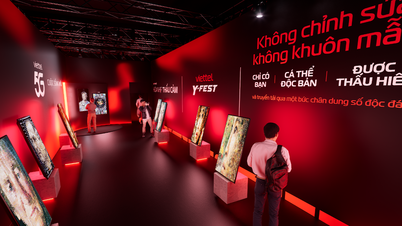



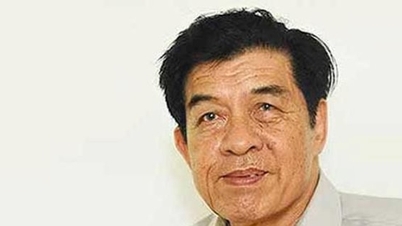

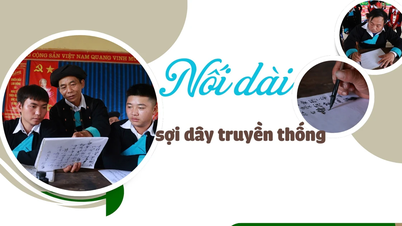


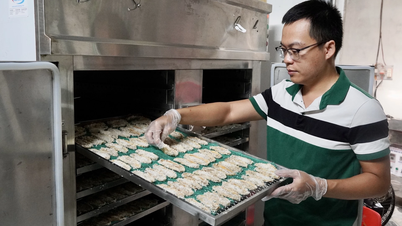

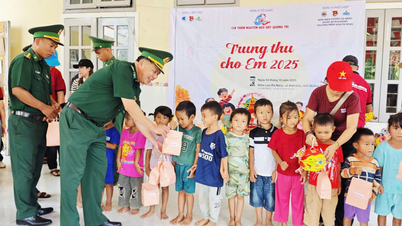
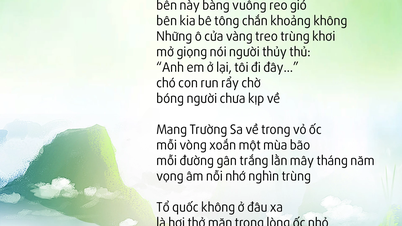
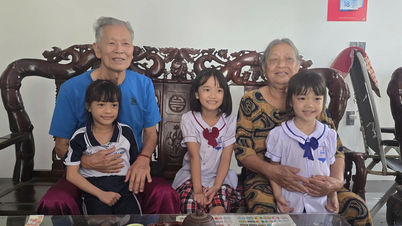
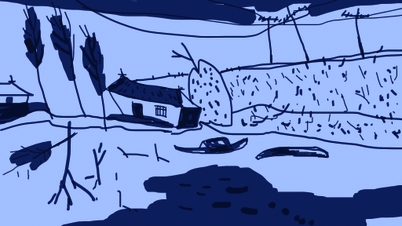
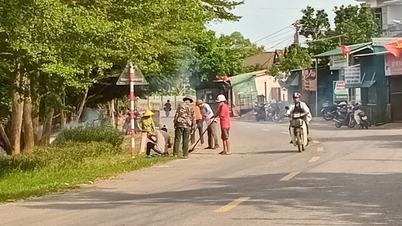




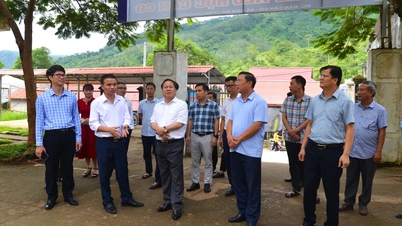
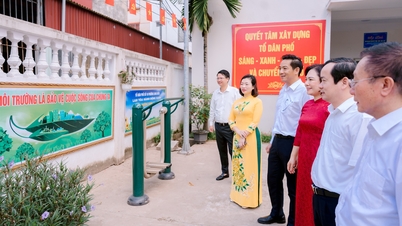
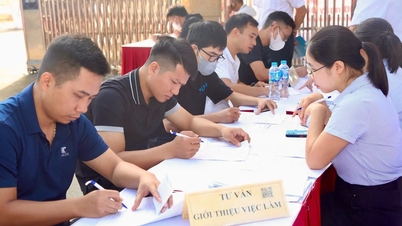
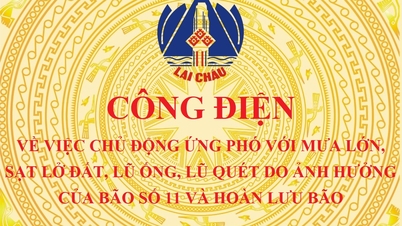
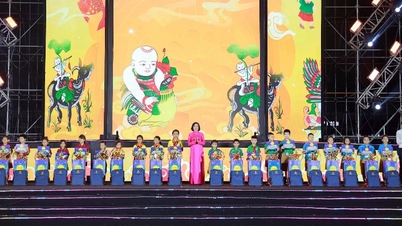

![[Photo] Bustling Mid-Autumn Festival at the Museum of Ethnology](https://vphoto.vietnam.vn/thumb/1200x675/vietnam/resource/IMAGE/2025/10/4/da8d5927734d4ca58e3eced14bc435a3)























![[VIDEO] Summary of Petrovietnam's 50th Anniversary Ceremony](https://vphoto.vietnam.vn/thumb/402x226/vietnam/resource/IMAGE/2025/10/4/abe133bdb8114793a16d4fe3e5bd0f12)

![[VIDEO] GENERAL SECRETARY TO LAM AWARDS PETROVIETNAM 8 GOLDEN WORDS: "PIONEER - EXCELLENT - SUSTAINABLE - GLOBAL"](https://vphoto.vietnam.vn/thumb/402x226/vietnam/resource/IMAGE/2025/7/23/c2fdb48863e846cfa9fb8e6ea9cf44e7)














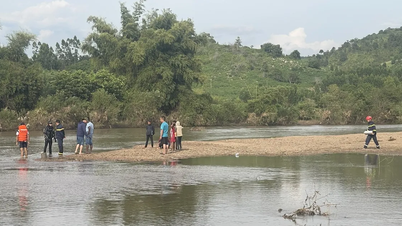
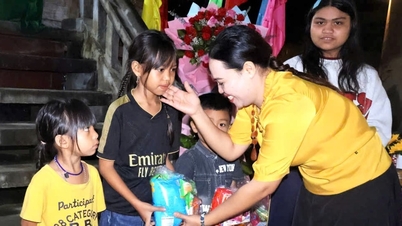

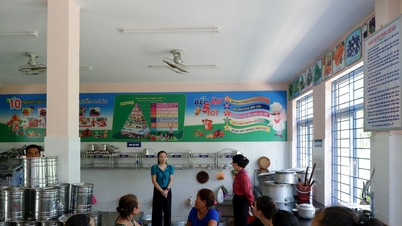

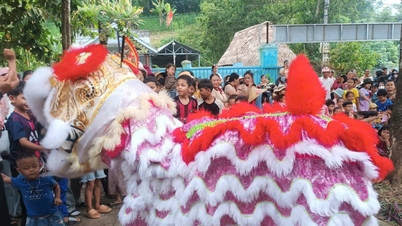
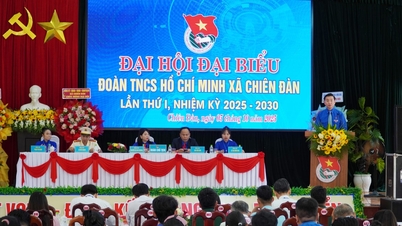












Comment (0)